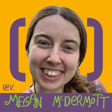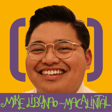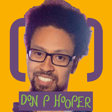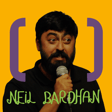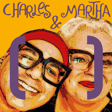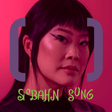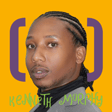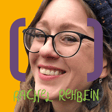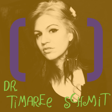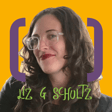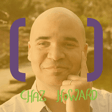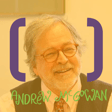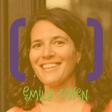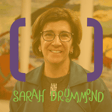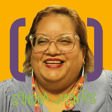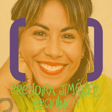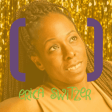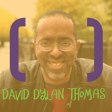Historical Erasure of Queer Identity
00:00:00
Speaker
As I like to say, it's not just that we're here and we're queer. We have been here and we have been queer for several thousand years. You just forgot.
00:00:14
Speaker
To further that point, I think it's not that we forgot. It's that it was taken from us. And I think that's one of the things I have been thinking about, and I think that struck me as you were speaking, is that how insidious is white supremacy and are the systems of oppression in this country that they make us forget where we came from, that make us forget that trans and queer people have been in existence since ancient Mesopotamian times. And somehow, we conveniently forgot that.
00:00:42
Speaker
through this period of US imperialism. And I think I have also experienced this dissonance of, oh, if you're queer, that makes you somehow more American and less Korean, kind of ripping you more from the motherland. But who is doing that ripping?
Introduction to Uncommon Good Podcast
00:01:07
Speaker
This is Uncommon Good, the podcast where we chat to ordinary people doing uncommon good in service of our common humanity. My name is Pauli Rees. Fam, I am delighted today to bring you an extra special bonus episode. This is the live, unedited recording of Muim, a gathering of queer and trans people of Korean descent.
00:01:30
Speaker
held in March 2023, recorded on location at David Rubenstein Atrium of Lincoln Center for the Performing Arts in New York City. This was a panel of seven queer and trans folk of Korean descent of various areas of expertise coming together to share the insight.
00:01:53
Speaker
Here's your content warning. Trauma, discussions of anti-Asian racism, discussions of historical violence, discussions of queerphobia, and there is explicit language in this episode. It was a privilege and honor, a sacred honor, to be in the room with these folk and get to share a little insight as well.
Panelists and Roles
00:02:18
Speaker
Please enjoy the taping.
00:02:36
Speaker
We're here. Full transparency, yes. This has been a long time coming.
00:02:42
Speaker
We're so excited to have you. So to introduce myself, my name is Donbi Lee Hong. I use they've been pronouns. I'm a queer and non-binary artist and organizer based in Seattle, Washington. Yeah, and I'm also a steering committee member with KQDX National Network, which is the first queer and trans national network that just aims to build community for queer and trans folks of the Korean diaspora.
00:03:11
Speaker
And I will be co-moderating the panel with Miro this evening.
Moim Event Significance
00:03:15
Speaker
Hi, everyone. My name is Miro. I use they them pronouns. I am currently a grad student in Chicago, Illinois, also a community organizer and a former steering committee member, now an advisory council member for the same organization.
00:03:34
Speaker
KQDX National Network. We are so excited to have you all here today for day one of Moim, which is a Korean word for gathering, reunion, and events, a momentous occasion as it is today. Tonight, we will be discussing having six wonderful panelists to discuss all things Korean, queer, and transgender.
00:04:05
Speaker
These are leaders, role models, amazing, amazing people in the community. We're very, very excited to be with them today. And then just want to do remind you that it is a two-day event, so please don't forget to come back tomorrow at 7.30 for a celebration of artists and other community members who are going to be
00:04:30
Speaker
blessing us with lots of music, art, and performances for tomorrow. Thank you so much. And this event is hosted in collaboration with the David Rubenstein Atrium, who's happy to host free programming three to four nights a week at the Lincoln Center. So be sure to check that out. We're so grateful to our gracious hosts this evening.
00:04:51
Speaker
And we just have some housekeeping. Yes. So one quick housekeeping is that this is a fully mask mandatory program for both today and tomorrow. And what this means is that we ask that you stay fully masked unless you are actively eating or drinking, at which point that's fine because you can't eat or drink throughout your mask. But we ask that you do abide by this request. And we thank you on advance because
00:05:19
Speaker
I see that everyone is wearing a mask here, so that should not be an issue. And without further ado, we'll welcome our first panelist to the stage.
Personal Journeys and Queer Identity
00:05:29
Speaker
Janice Jin is a member of Nudotor, an organization of Koreans and comrades working towards Korean reunification and national liberation. Welcome, welcome. Thank you.
00:05:44
Speaker
Holly Reese is a content creator and producer based out of Philadelphia who integrates techniques of trauma-informed spiritual care and digital storytelling to build conversation and community across lines of difference, principally through their company, Uncommon Good Media.
00:06:04
Speaker
And Skylar Baylor is a queer Korean-American advocate, author, and educator who was the first openly transgender athlete on a Division I men's sports team. Next, we are followed by Popsas Hung Park using he can pronouns
00:06:23
Speaker
Sung Park is an initiated Korean shaman who lives in Brooklyn and wants to serve support communities in reclaiming and ensuring and pursuing their ancestral practices.
00:06:40
Speaker
We also have the lovely Dr. Pauline Park who is an activist and writer who lives in Jackson Heights and is in Western Queens and has been doing LGBTQ activism since 1994 and Palestinian solidarity organizing since 2011.
00:07:01
Speaker
And last but not least, we have Budang Jen, who is a Korean American shaman, also known as Mudang. She is an internationally known and respected teaching artist practicing Budang and consultant on Muism, which is Korea's ancient and indigenous religion. Thank you all to our panelists. Let's be seated.
00:07:32
Speaker
So the first question that we have for all of our panelists is, what is your relationship to the word queer? How has or hasn't this informed your work? We're starting with an easy one, so take your time. Okay, I'll just go first.
00:07:55
Speaker
For me, I think the word queer, when I came out or was coming into really fully knowing who I was, this was like early 90s. And so the term or the language around transgender wasn't really accessible and I didn't know about it. So for me, what it did was give me access into really kind of starting to find who I was in the words. And that's what it did for me.
00:08:27
Speaker
Thank you. Does anyone else have thoughts going off of pop stars home? Yes, Skyler? The first time I remember having sort of a, what's the best way to, like a conflict with the word, I was giving a speech in Florida to a largely older population of trans people, and I used the word queer to discuss myself.
00:08:53
Speaker
and just sort of identity in general. And I was actually given the feedback afterwards that people didn't like that. And it was the first time that I had experienced sort of an intergenerational shift from language. And I share this because I think when I was a kid, people used queer, it was kind of like starting to be used to discuss sexuality. And I didn't use it to discuss my sexuality because I didn't feel like it applied at the time.
00:09:20
Speaker
But then I became something that's sort of so central to how I describe myself now. And there's this really interesting history where it's also something that's been used to hurt a lot of people. So I personally love the word queer and I think it's a great way to describe both my gender and my sexuality as a queer trans person. And I think it's part of what I never want to lose is the history of its impact on others as
Intersection of Korean and Queer Identity
00:09:46
Speaker
And so I think it's always, I don't know, I wanted to add that in, because I think sometimes we can miss where we come from in these conversations, and I don't ever want to erase our ancestors, our queer ancestors. They don't want to be called queer, so that's another. Yeah, absolutely. Thank you so much for that addition with history and context. I do think that's really important, and you're right. The word queer has been connotated with a lot of different usages, and it has been used and abused throughout history, and so thank you for that.
00:10:19
Speaker
I would just say that I do identify as queer but there is an ambiguity at the heart of the term because it can mean as was alluded to before either sexually non-heteronormative meaning lesbian gay bisexual or and or it can mean genderqueer in some sense trans or non-binary and so I think
00:10:43
Speaker
we have to take that into account when recognizing that it is still useful as an umbrella term. The other thing I'd note is that queer was supposed to solve the alphabet soup problem, right, of LGBT, but now people just say LGBTQ. So queer has been subsumed within this umbrella
00:11:08
Speaker
alphabet soup that it was supposed to replace. I just note the irony of that. Absolutely. I appreciated Skyler when you talked a little bit about sort of the generational differences that might impact how we feel about the term queer. I think for me,
00:11:29
Speaker
I'm pretty recently out of college, so I'll update myself there. But I think for me, when I was in college, queer was actually the word that was used the most in the spaces that I was in. And in fact, I often heard q-poc, queer POC, being sort of another
00:11:48
Speaker
that a lot of people use. And I think for me, when I went to college, I didn't identify as queer. I hadn't made that legible to myself. And I found myself hanging out with all the queer kids in school. And I remember my friends would sort of, it was a running joke that I'd wear these button-up shirts and they would be like, all right, when is straight Janice gonna come out? And they of course were right, but eventually I did.
00:12:18
Speaker
I think I gravitated really toward those queer spaces and queer POC spaces because I think to me they also signaled a kind of shared value or a shared political commitment of some sort. And I think I was drawn to those spaces for precisely that reason, even if at the time I was straight Janus or I identified myself that way. And so I think for me being in those sort of queer POC spaces, I felt,
00:12:48
Speaker
In the friendships I was making and the relationships I was building, there was something undergirding those relationships that wasn't just about the interpersonal, but it was also about the political.
Identity Beyond Sexuality
00:13:00
Speaker
And that also helped me to reimagine what my friendships could look like, what my relationships could look like. What could my relationship to sex and to gender and to desire and power, what could all of that look like? And so eventually I came to identify myself with the word queer. But I think there's something interesting and expansive about how that word sort of
00:13:26
Speaker
It can be more than a sexual identity, right? It can be like a sort of something that builds momentum or builds community among people, and that's sort of what I found, I think, when I was in college, especially, you know, finding that in queer spaces. Yeah, thank you. Thank you for sharing so much of your story, and I think that's like really interesting.
00:13:48
Speaker
no worries on dating yourself. I feel like we're all an understanding of like the various different generations and that's one of the beauties of being in community with each other is that we are in this space to learn from one another and our different experiences and I think kind of going off of that I actually have a question for Dr. Park specifically because there are so many experiences
00:14:11
Speaker
experiences from your career and your journey as an individual and as an academic, as a philosopher, all of these multitudes of identities that you've discovered and realized. Could you tell us a little bit about your work with specifically the Korea Queer Festival and the Seoul Pride Parade in 2015? I was adopted at the age of seven and a half months.
00:14:39
Speaker
In 2015, I returned to Korea for the first time since my adoption, and I was really honored to be invited to keynote the Queer Korea Festival, which precedes this old pride parade, which was the largest event in the history of the queer community up until that time. It was really a tremendous experience, and I talk about it at some length on my website.
00:15:08
Speaker
I think that it gave me a really good sense of the challenges that the queer community continue to face in Korea, even as they make progress, and the need for solidarity with queer communities in Korea, Asia, and abroad, and the work that is still to be done. The one thing I'd add is that
00:15:35
Speaker
this old Pride Parade, which comes after the Queer Korea Festival, was really exhilarating because there was no corporate sponsorship. And so, yes, there were no banks or corporations with floats or affinity groups, and those are all fine, I'm all for that. But it was just queer Koreans marching for their rights.
00:16:01
Speaker
And it really took me back to the day when there were no corporate sponsorships to date myself. I marched in the first national, it was called Gay and Lesbian, this was before LGBT and transgender, march on Washington in 1980. Yeah, I was one year old. But I was very precocious.
00:16:31
Speaker
But back then there were no corporate sponsorships. And so I think that we have to think carefully about how on the one hand we fund a community and a movement and organizations which need those resources, but on the other hand what compromises we may have to make in accepting funding from those sources. Thank you so much Dr. Park. Thank you.
Korean Reunification Efforts
00:17:01
Speaker
Yes, staying on the Korean Peninsula. Janice, I actually have a question for you about your involvement and work with Nodutor. And can you talk a little bit about how you got involved with Nodutor and what kind of work you've been doing through the organization? Yes, of course.
00:17:18
Speaker
Just to give a little bit of background, Notadol is an organization of Koreans and comrades. We organize against US imperialism and toward Korean reunification and liberation. Notadol was founded in 1999 in New York, though now we have members across the US and in Canada as well.
00:17:39
Speaker
I joined Notre-Dol about a year and a half ago. I think, for me, I think my relationship to Korean-ness and Korea has changed a lot over my lifetime. As a kid, I was born in the U.S., and I don't really speak much to my extended family, so I didn't really feel super connected to Korea as a kid.
00:18:02
Speaker
But when I was in college, I sort of started to develop my thinking around anti-war and anti-imperialist politics. And I remember really vividly in 2017, Donald Trump gave this quote that was that the US would unleash fire and fury against North Korea if given any more threats. That fire and fury quote really stuck with me.
00:18:31
Speaker
and I think I started to feel really scared about what would happen if the US went to war with North Korea.
00:18:37
Speaker
At the same time, I realized that I didn't really know anything about North Korea. My family is Korean Chinese. That means I'm ethnically Korean, but my parents were born and raised in China. And so my extended family lives in Yanbian, which is an area of China that's right along the border with North Korea. And so as a kid, I remember visiting my family in China. And really the only experience I had with North Korea was visiting China.
00:19:07
Speaker
because I remember my parents would say to me, Hanmani's house is very close to North Korea. You know, you could even walk to North Korea from your Hanmani's house. I was so scared. I think I was like 10. I was like, oh no, what's gonna happen to me? You know, I would lie awake at night and think, oh, what would happen if I walked all the way to North Korea? What would happen to me?
00:19:32
Speaker
But I think recounting that story now makes me really sad because North Korea is my homeland too. North Korea is Korea.
00:19:43
Speaker
There used to not be a North Korea and a South Korea. And over the years, I've started to learn more about, you know, Korea before war and Korea before division. And I think that's actually helped me to sort of reimagine my relationship to Korea too.
00:20:04
Speaker
Because I recognize too that I have a different stake in it as someone who lives in the US.
Redefining Korean Identity
00:20:10
Speaker
I'm living in the US, the heart of the empire, and the empire that has divided Korea and split our homeland into two.
00:20:20
Speaker
And I think learning more about that history, right? When we talk about being Korean American, I think there's one way to tell the story that's sort of about, like an uplifting story about immigrant assimilation or achievement or accomplishment.
00:20:40
Speaker
But there's a different way to tell that story if you go a little further back in time, right, to the Korean War. And what is actually the relationship between those two words in Korean American, Korea and America? And I think for me, trying to grapple with that question is what brought me to Naruto and what's kept me sort of wanting to explore it. And I've loved being in Naruto, I think sort of
00:21:10
Speaker
It's one thing to try to ask all those questions by yourself, right? And read a bunch of books and Google things and watch YouTube videos alone. But it's another to do it with other people. And I found that I think being in an organization of people all trying to study and learn and work together toward the liberation of our shared homeland, I think has been really meaningful and very special to me.
00:21:41
Speaker
Thank you so much for sharing that. And I think that's a sentiment, especially with the knowledge and history that you covered of how the division of Korea and the peninsula and the presence of US military and all of that historical context is something that we probably don't discuss enough and oftentimes gets really overlooked.
00:22:03
Speaker
in the news and in a lot of mainstream media, which is I think why I think Nodoto and your work with Nodoto is so important, right? And bringing education to be more accessible to people like us and just to the rest of the world. And in talking about, I think,
00:22:23
Speaker
Korea, the whole peninsula what it means to have this connection of this identity. I do have a question for the entire panel for folks to kind of ponder on.
00:22:38
Speaker
is for the Korean Queer Trans National Network, KQDX, one of our defining values is actually redefining Korean-ness. And this specifically means acknowledging our diversity of experiences within the Korean identity, because there are so many, and it is not one cover-all blanket term.
00:23:03
Speaker
And in recognizing that, we know that everyone who may or may not identify with a Korean identity are individuals of varying lineage. And so part of Mooim and part of today is bringing folks together, holding a space to share dreams and hopes for our community and the changes you might still want to instill or provoke.
00:23:28
Speaker
with your leadership, with your work, and with this conversation. And so given your personal experiences, I'm curious, you know, could you tell us about how you claim or redefine what Korean-ness means to you and what is a vision or dream you have for our community in this journey?
00:23:47
Speaker
I'm gonna give you a moment because that's a really long and I just, I just ran over for a very long time. But if we could just sit with that and then if you have thoughts, you know, we would love to hear that.
00:24:03
Speaker
I can go. So I'm half Korean and half white.
Cultural Acceptance and Struggles
00:24:07
Speaker
My mom's family is actually half North Korean and escaped from North Korea. My grandmother, Mahaluni, walked from Pyongyang to Seoul before, or right before the war broke out. And my grandfather hid in Jeju, so he didn't have to fight in the army. And then my dad is white.
00:24:26
Speaker
from Chicago. So I share this because as a kid, I spent most of my childhood being demanded, what are you? And it wasn't just, what are you? I can see that you're Asian. It was, what are you? I don't know what you are. And one of the things that I found always most striking is I would answer the question. Sometimes I would be silly, and I would just make, I'd be like, I'm just a kid. But they were asking me for my race. So when I finally would answer the question, I'm Korean.
00:24:56
Speaker
or I'm half Korean, I'm half white, people would often tell me, no, you're not. They would be like, no, you're not. No, you must be, insert some other ethnicity, whether it be Mexican, indigenous, sometimes people would claim that they knew that I was Chinese and they would do something with their eyes, right? So people would decline me, my ethnicity, regardless of what background they were from, but often and most painfully, other Koreans. And I have to say that coming here was definitely a,
00:25:25
Speaker
an interesting experience just to imagine coming to a Korean-specific event, because I thought to myself, well, am I Korean enough? And that's been a question I've asked myself my entire life. And I think when I was a kid, this was the first identity that I knew, that I could name, that was obvious, right? My dad was white, or he still is white, and my mom is Korean. And so the discrepancy or the difference between the two was glaring, right? And the way they were treated in public was also very obvious.
00:25:55
Speaker
and obviously different. So I knew that identity early on, and I also knew early on that I needed to find a way to claim it for myself because nobody else was going to do it for me. And I think through that process, I was able to define Koreanness as whatever it felt like to me in a way that said, Koreanness means that I have lineage that attaches me to this peninsula, to that peninsula.
00:26:19
Speaker
And that's really all that it necessitates. Everything else from there means I get to define it for myself. Whether that means I do it through language or through connection to my grandparents or eating kimchi or taking Korean lessons, right? I think there's many different ways that I have found to connect to my Koreanness that make me Korean enough to me and to me only and discard people's opinions.
00:26:40
Speaker
But I think I wanted to share in that space, I think there's been this really tense and difficult conflict that I've had to hold that my blood embodies, which is the difference between colonizer and colonized, right? My dad comes from a white background. His grandfather fought in the Korean War as a white man who went to Korea in the American Army, and my grandparents on my Korean side escaped the Korean War. And to hold that, you know,
00:27:08
Speaker
in colonized blood quite literally has felt like a tension that I don't ever really know I'll be able to release. Especially given that my mom is an Asian woman and my dad is a white man, there's also a whole trope and
00:27:21
Speaker
stereotype of what it means for an Asian woman to marry a white man and the power differential and all the things that it drags forth in the world. And what does it mean that I came from that? That birthed me. And I am in this world, again, in that sort of conflict of colonized and colonizer. So it's really about how I then get to move from that and define it for myself as opposed to letting the colonized or the colonizer define it for me before I get to say who I am.
00:28:00
Speaker
Yeah, thank you again. Does anyone else also have thoughts to add about this question? I know that it's, yeah, it is like a very deeply provoking question and we recognize that. I do have something to add to Skyler's. Thank you for sharing.
00:28:18
Speaker
I also just want to take a moment to recognize the fact that this is an intergenerational panel. And I think for me, having gone through different iterations of queer Korean movements in New York specifically, that this is kind of, you know, it's a very touching moment for me, right? Because for someone who's in my mid-40s, I mean, I've known Pauline since, I don't know, like, 99, right? So we've known each other since 99.
00:28:49
Speaker
And you know like Pauline has also always been there as one of the kind of like the
Identity and Community Evolution
00:28:54
Speaker
elders. I mean back then she wasn't an elder but she was always kind of the elder right just because you know I'm sorry Pauline. You know and then you know the different life stages kind of bring us to different places and you know some of us fall out of movement, some of us fall out of community or we create our own and then you know like
00:29:15
Speaker
you get caught up in life. And so one of the things that I do wanna recognize is just kind of like the span of like the different timeline and living history that's up here. And I also wanna say that to me, Koreanness is really the way that I look at identity is rooted in movement, right? And it's rooted in community. So it's always going to be in fluctuation and it's always going to be a living and breathing thing, right?
00:29:43
Speaker
So to me, it's about Korean. I think a lot about being a Korean in the diaspora. I came here to the US when I was nine. I identify as 1.5. I've always felt like I had one foot in Korean culture and one foot in American culture and not really knowing where I fit. And then when you throw in the whole queer and trans thing into the mix, it just kind of like...
00:30:13
Speaker
When I first came out to my older brother, oh God, too many years ago, his first comment was, oh, we're a real American family, right? So it was like the queerness that defined whether or not I was Korean enough, right? So I think that, you know, I am really hoping that some of these things have changed within Korean families and in the larger context of the community.
00:30:39
Speaker
But I also value the fact that that was his response, because what that made me do was really dig into who I was. And the fact that I grew up in the Korean immigrant church, and the fact that I felt so Korean, and just the fact that I'm trans and queer,
00:30:59
Speaker
would make me less Korean in other people's eyes. And so in a way, it really humbled me in looking at other people, right? And that it's not, I can't judge whether or not you're Korean enough, whether or not you're Korean enough, right? And the fact of the matter is, is that we are all in the diaspora looking and searching. Like we are all searching, right? And one of the things that I do hope
00:31:28
Speaker
is that we do get to a place, and as a community, and together, that we start to really rediscover and reclaim some of those things that everyone has told us doesn't belong to us, because it does. So I was adopted about the same time as Park Chung-hee's military coup d'etat that overthrew the Second Republic.
00:31:58
Speaker
I don't know if you knew that. Yeah, which was interesting because when I spoke at the Queer Korea Festival, I referenced the fact that his daughter was then in the Blue House. She was often called the princess for having grown up in the Blue House. So as I said at the Queer Korea Festival, what Korea needs is fewer princesses and more queens in power.
00:32:30
Speaker
So I was adopted by a European American family. My parents were Christian fundamentalists. My father was second generation Norwegian American and my mother was fourth generation German American. My grandmother, who was my third parent, her first language was actually German.
00:32:52
Speaker
And I think maybe I have a bit more of a historical perspective than some people in my age group, because my mother was born in 1916, my father was born in 1912, and my grandmother was born in 1888. So I was raised by someone who was born in the 19th century. It's interesting reflecting on that,
00:33:19
Speaker
upbringing because I grew up in an all-white neighborhood on the south side of Milwaukee. My brother and I were the only non-white children in our grade school. And so I've gone from that to the opposite extreme. I now live in Jackson Heights, which is the most demographically diverse spot on planet Earth. But there's been a long journey between Milwaukee and Jackson Heights.
00:33:46
Speaker
When I was in graduate school, I took a course in political theory and read Michel Foucault and had this kind of breakthrough moment because I'd been struggling with identity questions all my life, which is hardly unique for either someone who's LGBT queer or a Korean adoptee.
00:34:04
Speaker
And I realized that there was an interesting parallel between my transgender identity and my Korean adulti identity, because I'd been struggling with binary oppositions all my life and realized that they were false dichotomies. Because on the one hand, there was real Korean versus fake Korean, since I didn't grow up with Korean family members or speaking the language.
00:34:27
Speaker
And the same thing with regard to transgender identity, real women versus fake women. And realize that this parallel, thinking through and working through this parallel, that I had my own unique identity that was just as authentic and legitimate as someone who grew up in an ethnic Korean family
00:34:54
Speaker
or was female-bodied, even if my experiences obviously were different from ethnic Koreans or female-bodied women, those who were assigned to the female sex at birth. When I transitioned, I decided to start using my Korean birth family name. The interesting thing about that is it kind of occluded my
00:35:18
Speaker
adaptee identity somewhat inadvertently because using a Korean family name, other Korean adoptees don't necessarily instantly recognize you as an adaptee. But what I realize is that all identity formations are social constructions. And ultimately, one has to see through those social constructions and define oneself
00:35:44
Speaker
through the authenticity of one's own being, whatever that may be, and that we can ultimately come to an understanding of ourselves
00:35:55
Speaker
I think is, some put it so eloquently, really through community. And it's actually through community. And really, frankly, in many ways through activism and organizing that I came to actualize my transgender identity. In many ways, my identity as a Korean adoptee, co-founding a group called Iban Queer Koreans of New York back in 1997. And even though it only lasted three years,
00:36:24
Speaker
It was the first Korean-specific LGBT organization here in New York, and in many ways is still fondly remembered by those who are members of it. So ultimately, I think we have to articulate our own authenticity and live in the integrity of our own identity. However, we articulate that identity.
00:36:59
Speaker
I'm really moved to hear how many commonalities I think there are between all of our experiences. In particular, I think this feeling of either straddling a binary or being inadequate in some way, I feel like, is something that I've heard in each of your stories, and I think
00:37:27
Speaker
I think there's something here about how the experience of queerness might equip us actually to be thinking about how we can be creating Korean identity through the acts of living through our own lives.
00:37:46
Speaker
You know, I think queerness, being queer, similarly to me at least, I feel like it can feel undefined or people can have a different conception of what it means to them. And Skylar, like the way you put it where, you know, you were like, I had to define queerness for myself.
00:38:04
Speaker
And that's, I think, a similar way that I feel about queerness a lot of the time. And so, you know, in Song, you said something about searching, right? Searching for that Korean identity. I feel like there's something there about taking it for yourself, searching. There's a lot of action, like,
00:38:26
Speaker
you know, what would it look like to think about Korean identity as a verb?
Expansive Korean Identity
00:38:30
Speaker
Something we make, something we are, something we try to create rather than something like being, you know, just like a natural state. And I think, you know, I feel like this panel is, it's, you know, you're right that it's amazing how intergenerational it is. We're all so different and yet we have a lot of shared experiences and I think if anything, to me, it makes me feel hopeful
00:38:56
Speaker
that I feel like we are and we can envision a Korean identity that is expansive and that's not limiting. Because I think for all of us to be free and for all of us to have the world we deserve to live in, it's gonna take queer Koreans, adopted Koreans, multiracial Koreans, disabled Koreans, Anichi Koreans, Korean Chinese people,
00:39:24
Speaker
It's gonna take all of us and I think, yeah, I just feel really moved, I guess, to sort of hear each of you talk a little bit about your own experiences and they really resonated with me too. Could I add something? Yeah, go for it. So one of the things that I've really come to conclude is that identity politics can either be limiting and exclusionary or it can be empowering and liberating.
00:39:54
Speaker
And it really depends on how you articulate that identity politics. Because I think identity politics is important insofar as we name the specificities of our oppressions. But we can't be limited by that. We have to use the identity politics framework to make common cause with other people and work for a more just society. I'll add one other thing, which is
00:40:23
Speaker
12 years ago, I developed a presentation which I've now given many times about queer Korean, queer API history. It's a very long title for a very short presentation. Proto-transgender and homoerotic traditions in pre-modern Asia and the Pacific.
00:40:45
Speaker
which sounds like a dissertation title, doesn't it? It's actually a lot more fun and there's some racy images on my website if you want to check out pawingpark.com. Some of them, if you posted them, might get you into trouble on social media. But what it does is really look at the history of the Asia Pacific region and people who anticipated
00:41:14
Speaker
contemporary LGBTQ identities, even if they were different in some respects from folks in this room.
Reclaiming Queer API History
00:41:24
Speaker
But the point is not simply to tell some interesting stories about our history. It's also to enable queer APIs to reclaim their history in a way that allows us to reinsert ourselves into the governing narratives and discourses
00:41:44
Speaker
of our countries and cultures of origin. In contrast to a gay diffusion model which articulates LGBT identity in white European American terms. And it's an important point because reactionaries both within API communities here in the US and also back in our home countries and countries of origin articulate that gay diffusion model which is
00:42:15
Speaker
Well, if you're queer, it's only because you've been hanging around white people too much. That's actually the gay diffusion model that I use. And so this history, which I present, it's almost invariably new to every group of people, often classes of students, to whom I present it.
00:42:39
Speaker
They find it very empowering. I gave a presentation in a class at Hunter College a year ago. And afterwards, one of the students came up to me. He said, well, you know, I'm 1.5 generation. I came here from Korea when I was 12 years old. And when I came out as gay, I felt like I had to divorce myself from the Korean community, both because of its homophobia and because he had understood
00:43:06
Speaker
gay and LGBT identity articulated as white, as European and North American. And he said, this is the first time that I've been able to connect my LGBT queer identity with my Korean heritage. And it was really the most gratifying thing to hear this young gay Korean American feel liberated by a short presentation
00:43:35
Speaker
on queer API history, but that is exactly what I think we need to do, is reclaim that history and reinsert ourselves in the narratives of our countries and cultures of origin. As I like to say, it's not just that we're here and we're queer. We have been here and we have been queer for several thousand years, you just forgot.
00:44:02
Speaker
To further that point, I think it's not that we forgot. It's that it was taken from us. And I think that's one of the things I have been thinking about, and I think that struck me as you were speaking, is that how insidious is white supremacy and are the systems of oppression in this country that they make us forget where we came from, that make us forget that trans and queer people have been in existence since ancient Mesopotamian times, and somehow we conveniently forgot that
00:44:30
Speaker
through this period of US imperialism. And I think I have also experienced this dissonance of, oh, if you're queer, that makes you somehow more American and less Korean, kind of ripping you more from the motherland. But who is doing that ripping? Is it Korean people? Is it Korean-ness? Or is it truly white imperialism and the systems of oppression that have forced us to forget that or rather killed
00:44:57
Speaker
and beat it out of us. And I think, you know, I've done a lot of research on indigenous populations in the United States, specifically, or on Turtle Island, and what a lot of the, for anybody who doesn't know, what a lot of colonization did was actually destroyed
00:45:11
Speaker
civilizations of people through targeting the queer and trans people, through targeting the people who didn't seem to match these binaries. And when he did that, you could actually then empower the men or who you said were men over the women, and then that creates internal conflict and there destroys the society.
Resilience of Queer Korean History
00:45:29
Speaker
So I think one of the things we miss and that I didn't learn in school and had to discover over time and through presentations, I've not seen yours, but now I need to go see it,
00:45:37
Speaker
But through these kinds of learnings from queer and trans people of color histories, we actually learned that a lot of the destruction came out of, began with, a genocide of trans and queer people, and trans and queerness. So we didn't forget, this is not an argument with you, I know you know this.
00:45:57
Speaker
It's not a forgetting. It's an active erasure that's actually reoccurring today. So we're actually seeing that now too. And that's something that we also can't miss because ultimately white supremacy and the systems of oppression don't care about queerness. They are not more queer. White people are not more queer than everybody else. But the systems of power want to use whatever they can.
00:46:23
Speaker
to eradicate anything that's going to disrupt that system of power. And right now, that's trans kids. So I think that just can't be missed in this conversation.
00:46:33
Speaker
Thank you. Yeah, let's have a round of applause. I think so many great points and so beautifully said. I know that I personally resonated with a lot of what everyone spoke about and a lot of the historical context and the white supremacy, the oppression, the history, the forgetting. And also, I would like to then
00:47:01
Speaker
create space to propose this idea of like wonder and like wonder, fascination, and like, wow, how remarkable is it that
00:47:14
Speaker
despite all of that, you know, all of that history and the oppression that queer and trans people have faced and Korean queer and trans people have faced, like we are now gathered here today celebrating and holding this very, you know, this very, like, lovely organized event and sharing space together and sharing wisdom and knowledge and I think
00:47:39
Speaker
not that it changes any of any of I think like the past history and the pain and obviously the suffering that a lot of our communities have gone through I think you know would also like to highlight that this is a really beautiful moment and I you know just want to really appreciate all of the words that all of you have contributed um this is not over um we still have more questions but just want to take a moment um because
00:48:05
Speaker
Yeah, thank you all for being here and sharing your stories and your experiences because this is exactly why we're here.
00:48:11
Speaker
right, is to do that. Kind of, you know, going along and continuing the conversation, we talked about history and ancestry, and with ancestry comes like this question of legacy, right? And one of the things that I know that we mentioned talking about earlier was with this space that we're creating through Moim, through KQDX, through the verb that is Korean identity.
00:48:38
Speaker
You know, what does that look like for you? What does ancestry mean? And what does that mean in terms of, you know, it could be your personal experiences, your personal achievements, your career, what it means in terms of what you might want us.
00:48:53
Speaker
to leave behind as it is a very, you're right, this is a really intergenerational panel and all of us have very different timelines and we can see the legacy right now, like as we sit here today and I think that's a really beautiful thing. Just curious if there's like any thoughts that are triggered by any of those words specifically.
00:49:22
Speaker
I'll just quickly say that during our pre-panel meeting, me and I were talking about how momentous and how amazing it is to have all of you on this panel discussion together to be able to have kind of like an interdisciplinary discussion. Everyone's coming from such different places as well. And it's really rare across division, across all odds, to be able to be in the same room sharing different perspectives.
00:49:49
Speaker
Just feeling really thankful. But yeah, ancestry, community, kinship, like, to re-trigger the memories. Well, I would just like to say, to thank me and Danbi and Siobhan and all those who organized this and made this possible.
Survival and Cultural Identity
00:50:09
Speaker
We wouldn't be here if it weren't for them.
00:50:17
Speaker
For me, on my show, we ask everybody the same question, and it goes to the heart of this. So thank you. Jen has reminded me, oh, you should say the name of the show. So my show is called Uncommon Good with Pauli Reese, and you can find us everywhere you get podcasts, you can find us on YouTube. But the point is, in this specific question that we ask everyone is, and that I hope that you take some time to think about as well, is,
00:50:48
Speaker
What do you want the world to look like when you're done with it? Because there are hundreds of millions of people, hundreds of billions of people, excuse me, who are already done with it to the extent that their corporeal bodies are now recycled and part of us, right?
00:51:09
Speaker
For me, the work of legacy, being Korean adoptee, being, if ever I have a Netflix comedy special, instead of being raised by wolves, it will read raised by whites.
00:51:28
Speaker
So much of that experience is, as others have said, is being choose to choose one side out of a false dichotomy. You talked about the aggressive eradication of queerness. I like to call that aggressive incentivization towards normality.
00:51:51
Speaker
Because that's what it is, that's a part of it, right? We are being placed in a space where the choice of survival is to choose a whitening of the self, a lessening of the self, that cajoling, right?
00:52:14
Speaker
for me to circle back through some of these questions of queerness and to draw threads together for me, the notion of queer, in my work studying queer theology, the community organizing work, spending time in, we talked about indigenous traditions, most of my exposure comes through the Zapotec tradition of the mouche,
00:52:42
Speaker
there isn't a direct translation of this that we know of. But functionally it is a person assigned male genitalia at birth where in the lack of a town elder performing assigned female genitalia at birth performing those functions steps in and does that sort of gender bending work of providing nurture. But the work of legacy is about for me as someone who's
00:53:11
Speaker
who was forced to choose survival, survival in scare quotes, over self and self-awareness, is to choose self-awareness and to choose to become more the person that I am in ways that are joyful and life-giving as opposed to stifling and cancerous.
00:53:34
Speaker
in both the health sense of the word and the more philosophical sense of the word. To choose things that give me joy and help create joy for other people is the greatest thing that I can do. And then to give people the tools to find whatever else their joy is and however else they can create that
00:54:02
Speaker
in their own lives and help other people do the same thing. And whatever ism, whatever way of being, I'm Anglican. In my way, we call that a way of life, like a set of principles to organize your life around.
00:54:21
Speaker
Like, that's awesome. Whatever that is that helps you be less of, can we cuss on this? Go for it. Whatever helps you be less of an asshole, do that, right? Because there are way too many systems that are creating way too many people who don't have to be assholes and are one interaction with you, a joyful person, away from not being an asshole.
00:54:46
Speaker
Right? All of the systems we're talking about, we're not talking about people because we are all on each other's team. And for me, the legacy is helping us all get on the same team together and to help stop physically, psychologically, and ideologically killing each other and the planet. Thank you.
00:55:21
Speaker
I love that question. Can you say it again, the opening question that, Paul, you ask in your podcast, what is it? Oh, thank you. What do you want the world to look like when you're done with it? It's really nice. I'd love to talk a little bit about ancestry. I recently applied to a scholarship where one of the questions they asked me was, which country do you identify your heritage with?
00:55:52
Speaker
And I paused because I realized I didn't know what to put. I mentioned earlier that I'm Korean Chinese. Recently I've been learning more about my family history and when and why and how my family went from Korea to China.
Heritage and Revolutionary History
00:56:10
Speaker
My family left Korea before there was a North Korea and a South Korea. And so when I looked at this application question on the scholarship form, I realized I didn't know what to put.
00:56:22
Speaker
There was North Korea, there was South Korea, there was China, and I didn't know which of those three felt right for me. I recently learned that my grandfather, so I'm learning more about sort of why my family left Korea for China, as I mentioned, and I learned recently that my grandfather was a revolutionary.
00:56:51
Speaker
who fought for Korean independence from Japan's colonial regime. And as a young person in Korea at the time, he was trying to organize for Korea's liberation from Japan. But Japan's colonial regime was brutal and violent, and they swiftly repressed any anti-Japanese sentiment. So my grandfather and others like him fled to Manchuria,
00:57:21
Speaker
where they could organize freely for Korean independence and train guerrilla armies to fight the Japanese. I only learned this a few weeks ago, actually. My grandfather, he died a long time before I was born, so I've never met him. But I like to think that we can speak to each other through this sort of shared dream or shared vision that he had
00:57:51
Speaker
for Korea's liberation and that I try to have today too. That application question on that scholarship form, it bothered me so much because I'm not South Korean. I'm also not North Korean. I'm Korean. I'm Korean. And my grandfather, he fought for Korea to be liberated from Japan.
00:58:14
Speaker
He fought for Korea's independence and for Korea's freedom. And I'm part of that history and that legacy, and all of us are. And I think a lot about that question, like, are you from North Korea, or are you from South Korea? Are you North Korean, or are you South Korean? And what would it look like for us to sort of acknowledge
00:58:46
Speaker
the assumption that that question itself is based on. Korea is not two countries. Korea is one. Korea has been one for so long. And so many people, so many people have given their lives to fight for a free and reunified Korea. So when I submitted my scholarship application, I
00:59:09
Speaker
I think I put China and I wrote a little note saying, you know, this question challenged me a lot because, you know, I shared a little bit about my story and I said, I didn't know what to put because I'm from Korea or I'm Korean. I'm Korean period, no North or South. And I don't have any relationship to North Korea or South Korea. The relationship I have is to Korea.
00:59:36
Speaker
And I hope that the ways in which Korea's division shows up in these very mundane and everyday ways, I want to try to be better at appointing it out when I see it and when I experience it. And I think that's one way that we can sort of trouble that logic or trouble the normalization that now exists of Korea being two countries or Korea being divided by the war.
01:00:06
Speaker
It shouldn't be like that. And we can challenge that assumption in mundane and everyday ways. We can also do it in big ways. But to start, what would it look like for us to do that in small ways? And I think for me, that's something that I'm trying to do more. And I'm trying to insist on my ancestry as being tied to Korea without a north or south appended to it.
01:00:41
Speaker
I take it it wasn't one of those like hip new ones that let you check multiple buttons on the same. No, it wasn't. Damn it. Check one. You know, listening to, I was thinking about a few different things. One is, I remember a few years ago I saw a film about a famous mudong in Korea, the film is called Man-shun, and
01:01:08
Speaker
What was striking was that there was an anti-Mudong sort of witch hunt going on in South Korea and North Korea at the same time. So you have this CIA installed military dictatorship basically in South Korea and this communist kind of totalitarian regime in North Korea, both pursuing the persecution of the indigenous Mudong culture, even though these two regimes were
01:01:38
Speaker
hated enemies of the other. And it made me think back to when I finished my dissertation, so I finally had a little time to read stuff other than related to my dissertation, and I read a history of Korea. And I was so struck by part of the history that I hadn't really known about, which was about the time I was in utero.
01:02:03
Speaker
There was a popular uprising in April 1960 against the CIA installed a dictatorship of Sigmundmi, which resulted in a brief period of democratization under the Second Republic, which was then reversed a year later by Park Chung-hee. And it was interesting because I don't know anything about my birth family, nor am I ever likely to.
01:02:32
Speaker
But I was thinking if the story that my adoptive parents were told about my birth parents was true, and of course many Korean adoptees are told false stories or incomplete stories, but if that story was true and my mother died in childbirth, which was actually not at all improbable at that time when Korea was still recovering from the Korean War,
01:03:01
Speaker
and was still one of the poorest countries on earth. And my father died before I was born. Perhaps he was one of the many students and workers and ordinary Koreans who rose up against Syngman-wee's dictatorship in the April uprising in 1960. So perhaps I was born to make revolution.
01:03:28
Speaker
I love that praise. I love that praise. And I think it's really interesting that you,
Engaging with Indigenous Practices
01:03:37
Speaker
Dr. Park, you brought up specifically the persecution of Mudang and the indigenous practices. And on this panel alone, we are graced with the presence of two practitioners who are practicing these and are educated and initiated in these.
01:03:57
Speaker
in these indigenous practices that were persecuted and erased and very aggressively sought after for a really long time. And, you know, Wudangjian, I have a, you know, a specific question for you, you know, given the history of Muism, right, in Korea and
01:04:16
Speaker
the erasure, the negative stigmatization, which I feel like is maybe just now starting to kind of turn and people are starting to maybe change their minds about it a little bit. Do you have any hopes or takeaways on how we as the diaspora can engage with our indigenous practices and what does that look like?
01:04:39
Speaker
When I first started this path as working as a Korean shaman becoming initiated, I started this path as a way to reconnect with my ancestry, as a way to reconnect with my culture and my heritage. And I know that for many Korean diasporas and Korean people that they too are on similar journeys. And one of the things that I realized within the path of shamanism is creating space that
01:05:08
Speaker
creating a safe space for people to share their storytelling, share their grievances, and holding space for them because our lives is a sacred ritual.
01:05:19
Speaker
our lives as a personal expression, as a personal storytelling of our ancestry, of our stories that is connected to our heritage and our culture. And one of the ways that I think that Korean diasporas and people of Korean descent that can't connect is to
01:05:40
Speaker
is not to do something specific that makes you Korean, but is to explore what your story is, to explore what your connections are. And I know that within Korean shamanism there is a specific structure, but a lot of the things that we do in terms of rituals or ceremonies is to hold space that becomes so powerful. I know that ceremonies and rituals were used in
01:06:04
Speaker
in political movements as a way to hold space to share the grievances of the people as they opposed government or as they spoke up for their rights. So shamanism or ceremonies or rituals was always a way for people to express themselves, their storytelling, for them to have a safe space so that they could express themselves fully.
01:06:33
Speaker
Thank you so much. Maybe your guides are taking you to a place, which we welcome. But yeah, I have a follow up question for you as well.
01:06:54
Speaker
I'm curious if you also have any personal hopes or takeaways for the queer Korean diaspora, but I'm also curious how your own KQD identity has shaped and formed your spiritual journey and experiences as a mudang as well. Thank you for that question. I also wanted to explain that when I was first introduced, I was introduced as a Popsa, and I just went for access to language. I wanted to explain
01:07:23
Speaker
that that's a title that is usually used for like male mudangs. And also it's used for certain drummers who only hold ceremony. So I just wanted to just kind of make it or just explain that. And going along with that, I wanted to also circle back a little bit on the question of legacy. And it's something that I've been kind of obsessed with.
01:07:53
Speaker
because one of the things that I keep getting challenged by my spirits is around who is the legacy about, right? And who is the legacy for? And so I spent a lot of time in meditation and in prayer and reflection because the thing that I have come to realize that this is all because
01:08:20
Speaker
It's bigger than me and it's bigger than any one individual. And what has resulted is now my next obsession is around access, right? It's about access to practice, it's about access to tradition, and it's about access to our reclamation, right? And I think that we all talked about being a part of the diaspora
01:08:45
Speaker
We feel this longing and we feel this pull and sometimes we don't even know where that comes from. And part of that I know is that part of our legacy is also very ancestrally rooted, right? Like we can talk about all that we talked about, but we also need to recognize that we come from a legacy of trauma. We come from a legacy of Han.
01:09:12
Speaker
And through centuries of that, we're still here. And also the fact that the practice of Musok has survived through all of those efforts of colonialism and imperialism. It also shows me that we are also made up of a legacy of resilience. And that is something that I really hope for folks to really hold on to and to continue with. And really my hope and dream is that
01:09:42
Speaker
It really, the legacy is about everyone who is going to come after us, right? When I cross over to the other side, what is the thing that I can leave behind that other people can access, that other people can find without having to go through decades of searching, right? Because some of us have done that. You know, I'm, how old am I? I'm 46, sorry.
01:10:12
Speaker
I am 46. I actually, I mentioned briefly that I grew up in the immigrant Korean church. And so I naturally thought, and I've always had a tugging and a pulling of the spirits. And I naturally thought, oh, that means I have to go into ministry. So I went all the way to seminary. I got my master's in divinity. I was on an ordination track, everything. And then everything kind of came crashing down.
01:10:40
Speaker
when my father passed away suddenly and I had no fucking idea what to do for him. I didn't know how to honor him. I didn't know how to, like I didn't even know what to do. I didn't know if it was okay to even put out like a glass of soju for him, right? Because what I've been told over and over growing up in the church was that that is the deed of the devil, right? And so everything that I wanted to do, I was told
01:11:08
Speaker
that it was the opposite, right? That it was the making of the devil and Satan and all that kind of stuff. And then so when I also think about the question of like, how does my Korean queer trans identity come into play as a practitioner of musok? So I spent some time thinking about this because I was like, you know what? And what I realized was that it doesn't, right? What struck me was how little
01:11:38
Speaker
or if at all I've thought about being queer and trans, coming into the practice of muzok, as opposed to when I was seeking ordination in the Christian church, it was so front and center. My entire work was around getting access or helping to gain equity for queer and trans folks in the mainline churches. And I was driven by that.
01:12:06
Speaker
And then when I left the church and I found Musok, it just wasn't even a question. And it was such a, there was such a silence around it that at one point when I got that question, I was like, did I miss something? I was like, maybe I just missed like a pivotal point that I just don't remember. But I realized that I didn't. And that is because, you know what, like our ancestors, they don't care, right?
01:12:36
Speaker
They don't care if you're queer, they don't care if you're trans. There are people for a reason, and we are here for a reason. One of the things that I really do want to carry away from this also, or hopefully leave behind, is the fact that just the fact that we think about our identities
01:13:00
Speaker
is such an insidious way that the Western Christian imperialism has stripped us and has reduced us to these labels of identities. And I'm not saying they're not important. I do think they're important. And at the same time, we get so mired by them that we can't see past it. So yeah, thank you. You know, one of the things that I, yeah, that's great. One of the things that I,
01:13:29
Speaker
was struck by when I read this history of Korea at the end of grad school on my own, was the establishment of the Joseon dynasty by Yi Sung-ge, who became known as King Taejo in 1392.
01:13:47
Speaker
He surrounded himself with Neo-Confucian scholars who'd studied in China. And before 1392, Korea was basically a matrilineal society, not matriarchal but matrilineal. And the introduction of Buddhism, Confucianism, and Taoism into the peninsula from China had a profound effect on Korean society. And Lee Seong-ge, King Tae-jo, decided to redraw Korean society along Chinese lines and impose
01:14:17
Speaker
this rigid patriarchal system on Korean society, which was not indigenous. The Mudong culture was indigenous to Korean society. And so the rather rigidly Confucian, heteronormative Korean society that we think of today
01:14:36
Speaker
really was a result of political action by the new regime, which is an important point to be made. I'll tell you a kind of funny story. When I was making my way to Old City Hall Plaza for the Queer Korea Festival in June 2015, which by the way was the first time
01:15:06
Speaker
that that event was held in a kind of a mainstream location, not the University District or Itaewon or some sort of less mainstream venue. It was right in old City Hall Plaza, which is across the street from one of the ancient palaces.
01:15:31
Speaker
the square was surrounded, the police decided to try to erect a big blue plastic wall around the square because Christian fundamentalists were trying to shut us down. They even brought their own sound system and they were singing hymns and waving Bibles and Korean flags. Fortunately, our sound system was bigger and better than theirs. And I was making my way through
01:16:01
Speaker
thousands of Christian fundamentalists. And I was struck by the fact that they were waving Korean flags, which, of course, the Korean flag, first of all, was actually invented in China. But it has Taoist symbolism, right? The yin-yang and the hexagons, which is not at all Christian. And Christianity itself, of course, is a Western import.
01:16:29
Speaker
The funniest thing was that they had this little phalanx of teenage girls in tutus doing little ballet steps to the music of Tchaikovsky, who of course is the gayest composer of all time.
01:16:44
Speaker
That we know of. That we know of. That's a whole other story. But the ironies piled one on the other, because here you have these Christian fundamentalists who went to court to shut down the queer Korea festival. They were initially successful, but then a court overturned the initial ruling and ruled in favor of the organizers.
01:17:10
Speaker
And so you had these Christian fundamentalists who were completely unaware of or unconscious of the fact that they were, first of all, waving a flag with Taoist symbols on it, which was not at all Christian, and waving Bibles. And of course, the Bible is referring to Jesus of Nazareth, not Jesus of Namdaemon.
01:17:38
Speaker
And so one of the things that I think queer Koreans can help other Koreans and queer Americans do is decolonize their minds from both Christianity in its fundamentalist form, not its more progressive form, but fundamentalist Christianity and also unhelpful, scientific influences like Confucianism.
01:18:08
Speaker
and reconsider how the Musa, Mudong culture that's indigenous to Korean culture is actually woman-centered and queer-friendly. And one of the things, and this is something that I think was alluded to earlier by Skyler, one of the things that I was struck by in reading about the history of the Jukchi in
01:18:33
Speaker
Eastern Siberia, who are cousins really to the Korean people, was that Russian missionaries tried to extinguish indigenous culture in part because it was queer friendly. And the same thing when Russian colonists missionaries first arrived in Alaska,
01:18:51
Speaker
And we were shocked by Inuit and Native Alaskan identities and practices, which were queer friendly and recognized what Gilbert Hurt would call a third sex, third gender subject position, which every pre-modern Asian and Pacific Islander society had in some fashion, once again, referencing this presentation that you can find on my website. So one of the things that we need to do
01:19:21
Speaker
is liberate our own minds, reconnect with this history, and reconsider contemporary identities in light of this past history that is informed by a contemporary progressive intersectional feminism, as I would argue is really necessary to help transform our society into a more equal and just one.
01:19:52
Speaker
Thank you. Thank you, Dr. Park.
01:19:56
Speaker
I think something that has kind of underlied a lot of the answers that we've heard from the last three speakers is the sense of separation from the queer population in particular and spirituality and how it's something, in addition to, for queer Koreans, how it's something that's often used to remove us from our Korean-ness. It's another step to remove us from our spiritual identity and the practices that may ground us in the work that we do.
01:20:23
Speaker
So I guess my question now to Polly, to Mudangjian and Song is in addition to everyone, is like what are the practices that kind of ground you and like what are the lineages, the practices, the rituals that you have and then your hopes for our Korean queer community in reconnecting with those things that are so central in continuing to feed us in the work that we do.
01:20:57
Speaker
I'll start. For me, being invisibly disabled, a lot of that is a tenacious commitment to being careful guardian of my sleep.
01:21:23
Speaker
Just, yeah. I'm a podcaster, so I'm not very good at that. I'm not very good at being like, it's 10 o'clock, it's time for bed. But sleep is good. The thing about disability that's important to me and informs the answer to this question is that everything that you want to do always takes more effort.
01:21:51
Speaker
And on top of that, everything that you wish you could do, you never have enough time to do. Because everything takes more of your energy and you are starting from less, right? So for me, my present experience of spirituality as someone who has also withdrawn from
01:22:20
Speaker
a potential career in Christian ordained ministry. And it took completing an entire MDiv to figure that out. Up the road in Connecticut. Also, can we also just all ask the collective question, like, what and why is Connecticut? My guy over there knows exactly what we're talking about.
01:22:53
Speaker
I'm kidding, Yale Divinity School. Please sponsor the next talk that Moine does. So much of my spirituality is connected to the body because there is nothing about who I can be and what I can do if my body is not well. I got flu or RSV back in December and I was down for a month. It wasn't even COVID.
01:23:19
Speaker
Like, I was like, it must be COVID.
01:23:22
Speaker
one line on the bar, like the next day, et cetera. So careful attention to the body and paying attention to what the body is telling me is the right thing to be doing represents me paying attention to my spirit. Because that's what capitalism does, right? That's what the white industrial complex does, is it tells us that our body is not important enough to pay careful attention to. And that if you can,
01:23:53
Speaker
if you have to take a weekend, but please come back. Or if we have to give you labor day, or we have to give you maternity, how can we make that shorter, and how can we make you feel badly about taking it? So attention to body number one.
01:24:13
Speaker
Because we are people of, or at least for me, because I am a person of my history and for me, I don't have the energy, the emotional energy to just hate my own history and where I came from. I am doing my best to observe when in those moments there are things that were honestly like legit life-giving.
01:24:38
Speaker
And to pay a little bit more closer attention to what are the things about being raised in a Germanic white Anglo-Saxon Protestant family that feel good, that make me feel good.
01:24:53
Speaker
One of those things is like old-timey Sega Genesis, right? But everyone has one of those things. Well, whatever that is that feels like a part of my experience that I can connect to that is okay and makes me feel okay and brings me that joy, I'm gonna acknowledge that and do my best to live in the tension that it can be true
01:25:23
Speaker
that so much of my identity was erased, that I'm now in the process through things like being here, digging into my food, frankly, listening to the rest of the people on this panel, that I can live in the tension that all of those things were both awful, but it's still part of who I am, and I am not a bad thing.
01:25:51
Speaker
I am an okay thing. All of you are okay things. And we can, all of those things can be true. So that's, I guess, living in the tension is how I would describe.
01:26:11
Speaker
So, okay, I'm an extremely introverted person and I actually chose to withdraw from doing work with community and movement work because I just didn't want to be out there anymore. But one of the things, again, I think that I want to reiterate is that, you know, there is a challenge and there is a charge, right?
01:26:35
Speaker
For me, as someone who came out of movement and also someone who is also a middle child, so I'm very familiar with having to share, right? And building bridges. And so for me,
01:26:50
Speaker
I do think that for me in order to recharge and to feel at ease is to know that somehow we can find a way. I mean, I really am on a hunt to find a way to have some of our indigenous practices that are practiced and shared in a way that is carried by community and the collective because
01:27:16
Speaker
as it is practiced right now is very individual-based or very family-based. And I think for a lot of us, that doesn't necessarily vibe, right? Or it doesn't necessarily nurture us. And so I do want to be able to like find this access. And as Pauline mentioned, Korean history doesn't start in the Choson dynasty, right? That's just the most recent. And before that, it was not a patriarchal society.
01:27:46
Speaker
One of my models has become Confucius has fucked up everything. And also the fact that like, yes, it was matrilineal. However, it was not a matriarchal or a patriarchal, right? And I think that's the one thing about musok that I really hold on to is that musok is all about balance, right? It's all about holding the both and.
01:28:12
Speaker
And that also means the blessings and the tensions, but it's also about the healing that we can get from that. And so I do look at that as my means of moving toward becoming more whole and becoming more at ease. Thank you, Sarath. For me,
01:28:38
Speaker
being a shaman or walking this path of shamanism and exploring spirituality has been a way for me to reconnect with my culture and my heritage. And I'm sure many people feel the same way or is looking to reconnect. But one of the things that I realize within our spiritual practices is all about expression. If you look at the different things that are stemmed from shamanism, shaman ceremonies like drumming, dancing, singing, these are all different ways.
01:29:08
Speaker
for us to express ourselves, for us to have space in the story tell. And also, these tools that we use, whether it's drumming, dancing, or singing, it also helps us come back into our bodies that we often feel uncomfortable in. And I think that exploring our spiritual path is coming back into our bodies a little bit and to explore what our feelings are or what our emotions are.
01:29:34
Speaker
and knowing that their rage is sacred, knowing that what we feel is sacred, and knowing that our expression, our story is sacred.
01:29:44
Speaker
And that also expands to what some said is how it involves in the community. There is individual work, but also there is a bigger aspect of community, of gatherings. And I think that when there are spaces like this where we can gather to share stories, to share experiences, I think that is very powerful in providing healing and providing space for everyone.
01:30:08
Speaker
Could I respond to your question? I'm almost invariably asked to speak on panels about my political activism. So this is a rare opportunity to talk about something that, in theory, is completely non-political, which is in terms of spiritual practices. When I was 13, I picked up a little paperback book. I bought a little paperback book, paperback version of Dr. Ann Faraday's book called Dream Power.
01:30:37
Speaker
And it started me on an interesting path, which I almost never talked about this in public, but dream work, which I do on a regular basis and dream interpretation. The interesting thing is I have friends who say, oh, I don't dream. Of course, we all dream. Some of us remember our dreams and some do not. But the interesting thing about dreaming
01:31:02
Speaker
is that while Sigmund Freud opened up this world of dream interpretation to European and American audiences, of course, this kind of dream work is indigenous to pretty much every pre-modern culture. One of the most interesting, well, I'll just mention two things briefly. One is that I use dream work, I've had
01:31:31
Speaker
some very significant dreams which have really changed the course of my life. One thing that I did was use dream work actively to try to work through what I later came to understand was internalized homophobia and transphobia, particularly related to my Christian fundamentalist mother and family. When I was, I can remember as young as six and seven,
01:32:00
Speaker
having lucid dreams. Although I didn't know that term at the time. You know, dreaming when you wake up in your dream and you realize you're dreaming. And though I don't do it very often, I do occasionally do lucid dreaming. And this is something that is actually indigenous to a number of Asian cultures, Tibetan culture in particular. And there are stories of Tibetan dream yogis who will do lucid dreaming for days on end.
01:32:31
Speaker
And the interesting thing about this is that in Western societies, dreaming is considered frivolous or meaningless or maybe a luxury in a very productivist neoliberal capitalist economy. But in fact, it can be extremely important in terms of drawing insights from your own unconscious and also addressing
01:32:57
Speaker
issues, problems, challenges from us in one's own life. And so even though on the face of it in some ways it's apolitical, in other words, in another respect it's actually very political because it's a way in which we can
01:33:16
Speaker
reignite a connection with a deep spirituality. And I would also say, and this kind of connects with my interest with in fairy tales and folk tales and mythology, a re-enchantment to the world. Because one of the problems with the Industrial Revolution was the drive towards an ever more
01:33:44
Speaker
human exploitative but also earth exploitative and extractive economy and society. So one of the things that we can do when we engage in practices which are actually extremely ancient and indigenous to countries and cultures of origin is actually reimagine the world
01:34:10
Speaker
in a way that encompasses human needs and puts them ahead of profit, labor exploitation, extraction of natural resources, and also connects us with the plant world, the animal world, and the larger universe around us. Thank you so much, Dr. Parr.
01:34:37
Speaker
One last question before we move into a Q&A. So if the audience has any questions that are ruminating on your mind from this wonderful talk, now is the time to just tuck them away and prepare them for us. We'll have someone coming down with a mic. Shafan in the back. But the last question that I have, and hopefully we can all answer, is based on Dr. Pauline's last statement, what is one dream that you have for our community moving forward?
01:35:07
Speaker
And this community can look like whatever you wanted to find it as. I'm just noting that I know that this is kind of like an overall theme that we've been talking about for the past hour. And also noting, I know that I'm sure that there are people who want to ask you questions and engage with that, so maybe keep it a little bit brief.
01:35:39
Speaker
Well, I wanted to share this little note, and then I will answer the question. It's related, I promise. One of the things that, a couple years ago, I asked my, how many of this was before we went to Korea for a big family visit, really the only time I'd be consciously visiting, because I was two the last time I visited. I said, how many do you miss Korea? And she kind of was like, yeah, kind of. And I said, would you ever move back there? And she said, absolutely not.
01:36:04
Speaker
And I said, well, why not? And I was asking in a very curious manner, hopefully she didn't feel attacked, but she said, she said, America is my home. I've lived here for
01:36:15
Speaker
I don't know, 40, 50 years, America is my home. And my grandmother's a devout Catholic. I'm actually, from what I know about Muism and Mudongs, I'm afraid to ask her about it because of what she might have internalized from how she grew up. And so I learned nothing of Muism. I learned nothing about Mudongs until actually this panel. And the first time, I didn't know what Mudong was as we were doing our pre-panel call, and so I Googled it, and I immediately started crying.
01:36:45
Speaker
And when I was thinking about ancestry and thinking about dreams for the future, they don't feel all that different, the thoughts about ancestry and the thoughts about our dreams. In some ways, we are our ancestors' dreams. And as I dream, I dream of my ancestors. I think often these days, especially as I have lost my grandparents on my dad's side,
01:37:07
Speaker
And my grandparents on my mom's side, my Korean grandparents are in many ways, to me, they feel like the tie to my history, the tie to my Korean-ness. And I feel like I've already begun grieving their loss.
01:37:21
Speaker
And so I think about dreams when I think about the amount of movement that many of us have experienced in our families. I mean, all of you are likely immigrants here, just statistically speaking, not because you're here in Korean, but in America, most people immigrated some point in history. And what does that mean when we think about ancestry? When we think about ties to a land, to a practice, to a tradition? As I was listening and learning about Korean history, many things I didn't know
01:37:52
Speaker
My mom always likes to say, for 45 generations, we were in Korea and I didn't even think about what does that even mean to be in a country for 45 generations and now for her to be here for 45 years. So when I think about dreams and I think about ancestry and how I think they're the same thing,
01:38:12
Speaker
What I dream for the future is the ability to define one's self, not solely by ancestry and not solely by dream, but whatever we are in this one moment, and how do we integrate who we've been, who we come from, who we are expected to be, and who we truly are in every step of our lives. Thank you.
01:38:40
Speaker
For me to be queer and Korean is to be the fullest version of myself that I can be. Thank you, thank you. Yeah, come on, come on now. In my academic circles, in queer theology, there's a lot of talk about how to make something queer or to queer something is to disrupt it, to disrupt something else. I would love my dream for the world
01:39:11
Speaker
is for us to all live in a world where for us to be as fully ourselves as possible is no longer a status of being queer. Where it is perfectly normal for all of us in our beautiful, weird, messy, broken weirdness to be ourselves and for that to be the normal status of order.
01:39:40
Speaker
Thank you. Any other thoughts before we move on to Q&A? Yeah. I just want to say one last thing. I didn't know anything about Muslim either, even after I decided that I couldn't pursue ordination in the church. But I say all of this to say that what I hope and dream is that we all become memory holders for each other in community, because what I
01:40:11
Speaker
feel that I do when I do readings with different folks is that I am holding their memories, right? And I'm holding their ancestors' memories. And in turn, I am hoping that I am helping the other person recover and hold the memories of their people and their ancestors. And, you know, and we do this in community already by storytelling and by sharing.
01:40:35
Speaker
our experiences and our stories, right? And so my hope and dream is that this becomes and continues to be a collective effort in each of us being a sacred story holder and memory keeper for each other.
01:40:53
Speaker
Thank you so, so much. And with that, I know just for the sake of time, I do want us to move on to some questions from the audience. I know that Siobhan has a mic back there and the beautiful yellow jacket. If folks could please raise their hand and if they have questions that they would like to ask the panel, that would be great.
01:41:22
Speaker
Come on people. There's a couple hands over here. Raise them high. There's like flutters of hands over here. Hello. Hi, my name is Soy or Soyong, they learn pronouns. So there's a lot of
01:41:45
Speaker
things that are floating in my head from this panel. But most significant on my mind is the calling to heal in community. And this is the second time that I've heard that this month from in a Korean queer space connected to Muslim. And I just wanted to ask how that might look, like specifically what sort of spaces
01:42:13
Speaker
do y'all think are needed for us to do that actionably now? Like what are the, my Virgo Mars is popping out, like what are the logistical steps to like potential options that we can choose from for spaces like that? Yeah, that's my question. Great question, any thoughts?
01:42:39
Speaker
Oh, I know. So Jennifer and I talk about this all the time. Like, it's to the point where we're on the phone for hours at a time. It's all we do. Yeah, it's kind of like all we do. It's kind of weird. But, you know, to tell you the truth, we don't have an answer right now, right? And this is part of our journey in discovering and being part of practitioners as diasporic Koreans is to kind of try and rediscover
01:43:09
Speaker
or if there's nothing to rediscover, then what can we pull together that's going to be open, that can be opened up to community on that level. So, I mean, I'm sorry, I don't have anything to like concretely say or that you can touch right away, but I promise it's coming and I'm really determined to make it happen.
01:43:38
Speaker
As somebody who's not a mudong and who doesn't practice musoka, because I'm not an expert like you, I want to add that finding community is also about finding yourself. And what I mean by that is that the more we pay attention, this kind of goes off of what you were saying, Polly, but the more we pay attention to what feels good, the more we can find what feels good. And I think we are taught often to lean into what is productive, what will move us through a social network,
01:44:02
Speaker
What will get us a job? What will get us paid? That makes sense. That's survival, right? But what actually makes us feel good? What doesn't help us survive, but rather helps us thrive? And the more we do that, the more we build community of other people that thrive in similar ways that we do in similar environments and similar ambiances, right? And I think if we can listen to ourselves, what feels good in my friendships? What feels good in my relationships? What activities bring me joy?
01:44:26
Speaker
I think that that is the start of creating community, and you can do that tonight. You can do that right now. So I think that community starts with a person saying, I want to be in community with people who want to be in community with me. And it's two-sided, right? Belonging is two-sided. I most have to enter into a space, and I also have to be welcomed in that space. And first, I have to welcome myself. That's all I really can control.
01:44:57
Speaker
Hi, good evening. I just want to say thank you so much for this panel. It's fucking, excuse my language, it's fucking amazing. There's just so many beautiful people, so many I know and so many I've never met before, but I'm so glad that I saw you. I'm also here in community with my other steering committee members for KQTX, even though this is not a KQTX sanctioned event.
01:45:18
Speaker
Anyway, I just want to say hello, thank you. So I don't really have a question, but I have an observation and a comment as well. So I am also a KQDCAD, so that's a Korean adoptee. And so just my observation tonight, I heard the word legacy. I heard the word ancestry. I heard the word dream. But at the same time, I'm sitting here having a lot of emotions.
01:45:44
Speaker
Right? And so I'm sitting here under this beautiful artist, like, but I don't know what that means. It's not translated, right? So there's no language inclusion. And that's something that I'm hoping that we can all activate, right? Language inclusion.
Adoptee Inclusion and Identity
01:45:59
Speaker
There were some words that were being used tonight on this panel that I, you know, turned to somebody and said, what is that grandmother? What does that mean? So we don't all have that access.
01:46:10
Speaker
to those words. And I just want to say being an adoptee, right? We are part of this community, right? We are a huge part of this community. And our legacy, unfortunately, we are dying. We're dying. I'm the second wave of it. And the first and second wave is the 50s, 60s, 70s, and 80s. And the eventuality is the majority of us will be gone.
01:46:38
Speaker
And so I'm just trying to acknowledge the fact that going forward, my hope for our community is not that we just embrace queerness, transness, all of that, but you can just look around and acknowledge the fact that we've been here for so long.
01:46:58
Speaker
And there are parts of me that I have to share and shut off at the same time. And just saying to myself, like, I'm so glad to be here, but at the same time, we're not being acknowledged. And so my dream, my hope, my legacy is that when we talk about inclusion, it means all of it together all at once. So don't forget us. That's all my authorization is. So thank you again.
01:47:32
Speaker
Thank you for sharing that. I really appreciate, I know sometimes it can be, well, I imagine that I would feel scared to share what you shared and I just appreciate you reminding us of that. And I wanted to share though, I'm not an adoptee, I have many friends who are and I often find a lot more community with Korean adoptees than I do with people who have two Korean parents. And I too did not know many of the words that were shared
01:48:00
Speaker
And I also used a word that I didn't define when I said harmony, which is grandmother. So thank you for that reminder. I think that's just a, yeah, I'll take that forward and I really appreciate it. Hello. So as someone who both of their parents immigrated from Korea to America, I was born and raised here and I've never been to Korea. So I was wondering to what extent do you think
01:48:29
Speaker
And to what extent do you think it's necessary? And to what extent do you believe that you don't have to go to Korea to experience Korea? Could I quickly clarify your question? Do you also mean, to what extent do you feel like you have to go to Korea to be Korean or to experience Korea specifically? Yeah, like all of that. OK. Thank you.
01:48:58
Speaker
Well, you know, I'll tell you a story which is I always wanted to go back to Korea. I put back in quotes because it's funny, you know, half a century later going back. People always ask me, have you been back? Like I just left a week ago, you know. It was really funny because when I came back, I was chatting with a gay white friend of mine who in a very nice way said,
01:49:27
Speaker
So did you feel especially Korean when you were in Korea? I said, well, I have never felt less Korean than when I was in Korea, right? Because I didn't speak the language. I didn't grow up with culture. Some of the food was very strange to me I'd never seen before. And I'd eaten Korean food, but there were certain dishes that I'd never had before.
01:49:54
Speaker
I have Korean adoptee friends who feel the need to go back every year. I have one Korean adoptee friend who wept when he first arrived. I think everyone has a slight, has a different reaction. We're all individuals and each of us has our own individual path, whether that be our gender journey or in the case of adoptees, our adoptee journey. So I think it's really,
01:50:24
Speaker
a very individual question, I will only speak from my own experience by saying that I do hope to go back to Korea at some point, but I don't feel a compelling need to. I spent a month there and experienced the country of my birth, which is something I'd always wanted to do.
01:50:47
Speaker
But I have Korean friends here. I can go to 32nd Street or Flushing. They have great Korean food. So I don't necessarily need to go back to Korea to experience Korean-ness. I think the country is in the midst of significant change, some of which is good.
01:51:16
Speaker
The progress of the LGBT community is slow, but is moving ahead very slowly. Also, the country is slowly coming to terms with the extremely complicated legacy of Korean adoption, and I'm hoping the
01:51:42
Speaker
Parliament, the National Assembly, announced some significant adoption reform laws that give adoptees access to birth records that they should have access to but haven't had access to. So I think it's really an extremely individual
01:52:02
Speaker
question because, you know, I've literally hundreds of Korean adoptee friends and hundreds of pre-Korean friends and each of them has a slightly different relationship to the country. My relationship to the country is a somewhat ambivalent one because I respect it and in some ways revere it as the country of my birth, but I also recognize that it is
01:52:30
Speaker
a patriarchal, homophobic, transphobic, Confucian, overly Christian fundamentalist, influenced, capitalist regime in which the chaebol, the conglomerates have way too much power and the ruling elite is corrupt just like our own. So, you know, there are wonderful things about Korea. There were things that I loved. There are things that I hated.
01:52:58
Speaker
But I'll tell you, when I went there, I was concerned that people would read me as transgender. But oddly enough, I never had any experiences of transphobia in that sense. The only time that people stared at me was when I bared my shoulders. Because Korean women do not do that.
01:53:18
Speaker
It's one of these weird things. I mean, there were young Korean teenage girls who had, you know, shorts that were, that probably would get them arrested here, but they cover their shoulders. So I had these, I had a spaghetti strap dress, and I had one strapless dress that I thought was rather nice. And when I wore it, it was June and July, so it was really hot and humid. People would stare at me, you know, especially the ajumma. They would look at me like,
01:53:48
Speaker
But then I would throw a scarf over my shoulders and people would stop staring. So I realized it wasn't my transness, it was actually my bare shoulders. And I thought, hmm, could I really live in a country where I can't bare my shoulders in the summer? And so
Balancing Struggle and Joy in Storytelling
01:54:06
Speaker
I think my response would be that
01:54:08
Speaker
every single one of us will have a slightly different individual relationship to Korea and that will depend on so many different factors and that's fine because we all have a particular individual journey of Koreanness or
01:54:28
Speaker
individual journey is a Korean adaptee or a queer Korean or biracial or whatever identity formation we may embrace. Thank you and really quickly Dr. Park for the you know the sake and reiteration of language access could you define really quickly define ajumma? Oh yeah ajumma is sort of like I think technically it means married woman but it's sort of a
01:54:54
Speaker
slang for middle-aged women, and I'm now well into that category. But, you know, it has a slightly negative pejorative, you know, you picture the middle-aged women with the funny little sun visors who sit, and the perm and who sit there on the street corner and kind of write and kind of
01:55:18
Speaker
Yes, flower pants and they cluck their tongues when they see something that they don't approve of. Classically gossiping auntie type caricature. You see them in K-dramas all the time. I think also Pauline, what you're talking about in terms of the different ways people discover or experience their Korean-ness is
01:55:42
Speaker
it begs that identities evolve, right? Like my grandmother, in my opinion, if you were to make an objective spectrum of it, my grandmother, my harmony, is far more Korean than I am, and most people would read her as an immigrant. She's got an accent, she speaks, you know, English, but she mostly speaks Korean, and she looks like a Korean woman. She is definitely the permed floral-panted, wearing ajima who is older than an ajima. But anyways, she would tell you she's American.
01:56:12
Speaker
And she wouldn't deny her Korean-ness, but she would tell you fervently and firmly that she is American. And she's lived here longer than I have. And I would tell you first that I'm Korean.
01:56:23
Speaker
And I think the question or the core of what I'm trying to say is you get to define what that means to you. And so be it going back to Korea because you would like to experience amazing food, then great idea. But if you're gonna discover Koreanness because solely you are stepping on Korean land, I don't think there's a problem with that necessarily, but that is your journey, right? And I think it's really important to consider, can Koreanness or to ask yourself, can Koreanness evolve based on who I am and where I am?
01:56:54
Speaker
Thank you. We can probably take two more questions, two more questions if anybody has, yes. Hi, my name is MJ, they he pronouns. I think, so in storytelling, or when I kind of have been diving into storytelling, and especially for queer individuals, it's usually through like a lens of like violence, shame, and like a lot of like atrocities.
01:57:24
Speaker
And so when I've been trying to reimagine my own storytelling and trying to remove those and supplant curiosity, joy, it's been a very healing journey. And so I'm kind of wondering when we are retelling our stories, especially to younger generations, maybe even to older generations that don't have access to queer people,
01:57:47
Speaker
essential is the shame factor, the violence factor in these narratives and like how does joy and play come into that when we're kind of trying to like share these stories where so much of like in America specifically when you're trying to like dive into queer narratives it's to see yourself kind of like boxed up and like you know shaking for a while and then at the end it's like a crumb of joy in the face of like maybe a hand touch or something very small.
01:58:17
Speaker
But it's kind of exhausting. And so it's kind of been very healing to imagine like a life without that shame and out that like that box ofness. So yeah. I would just say, you know, over the course of the 28 or 20, I guess now it's 29 years.
01:58:40
Speaker
I've been doing LGBT activism. I've come to the conclusion that we have to tell both sorts of stories. We do have to tell stories of discrimination, harassment, abuse, and violence because they're very real. And of course, with the exponential increase in hate crimes against Asians, Asian Americans, there are many more stories to tell.
01:59:07
Speaker
At the same time, we also have to tell stories that inspire and empower us. Because if we only tell the kind of victim stories, it can be very, can actually be disempowering if we stop there. So I think we have to tell both sorts of stories. We have to both recognize the ongoing impression that we all face in some fashion or other, whether it be
01:59:37
Speaker
you know, homophobia, transphobia, biphobia, racism, et cetera, some combination thereof, and also talk about how we can overcome, how we can empower ourselves and others and work through community to pursue social justice and social change. And I think that's the way forward to transform society.
02:00:07
Speaker
There's a great book called How Far the Light Reaches by a non-binary half-Chinese half-white author and they write about marine creatures. I promise this is relevant.
02:00:21
Speaker
And they talk about the cuttlefish, which if you don't know, cuttlefish can morph and change its color based on its surroundings. And scientists have tested this cuttlefish by stressing it in order to make it change color. Basically, like if we run electrical current, if we scare it, it will change color.
02:00:38
Speaker
And they have a quote that says, this is a quote from the book, reading a creature through its camouflage seems a misguided attempt to understand its true nature, its whole self. I want to know how the cuttlefish morph when there are no sharks around only other cuttlefish. I want to know what kinds of transformation the cuttlefish is capable of, of when it is motivated not by fear, but by community and sex. And I'm not interested in calling it a disguise. And I think that's kind of
02:01:05
Speaker
what I thought of when you asked the question is what do we think about, how can we honor the history of oppression that queerness holds while also not seeing it as queer as in fuck the binary or queer as in fuck the system, but queer as in just who we are. As
Current Challenges and Spirituality
02:01:28
Speaker
the mics getting past MJ, I'll add a couple of things.
02:01:31
Speaker
My specialty in spiritual work is trauma-informed spiritual care, in the Western definition of that, like thinking about trauma as the overstimulation of the body's response to systems to be able to cope to an external stimulus, meaning, like, shit gets crazy.
02:01:53
Speaker
It sounds like to me, you have a sense, and I wanna make a very specific distinction between shame and all of the things that you described, and lament, and spiritual anger and rage, at the risk of...
02:02:13
Speaker
of triggering some of you who may have experiences with Christian fundamentalism, but I don't hear this in your comment, like righteous fury, the soul crying that it has been violated in such a way that there is nothing to do but to be angry by the way that the human has been marred, right? Right? Yeah, I heard you over there.
02:02:43
Speaker
At the risk, and not a therapist, but someone whose work intersects this component, so if you have a mental health professional, please see them. Also, just go see them.
02:03:02
Speaker
What your spirit is telling you that you're not, I suspect, is that you're not done with lament yet. There's more to explore there because I imagine that joy probably rings false for you right now. And if it does, then it's not real joy. And it's also another trick of the system to tell you that you should already be done lamenting.
02:03:32
Speaker
You cry and rage as much as you need to until you're done. And your body will know the body keeps the score. You'll know. Thank you. We have one last question. Two last questions. Perfect. I'm just so struck by the diversity of thoughts and disciplines and perspectives that the whole panel is bringing.
02:03:59
Speaker
And so this is kind of a more just open maybe lightning round. I'd love to hear from each person if possible, just because I know so much of what drives the work that each of you are doing, whether it's in your discipline or your political work, community organizing, are questions and discoveries. So I'm just curious for each person on the panel, what is a current discovery or question that you're grappling with that might be driving your work forward?
02:04:27
Speaker
Give a moment to sit and then maybe we could start with either Janice or Mudang-jen, which whoever's ready. We'll give a moment though. I'm seeing the buck be passed over to Mudang-jen from over here. I think that, I think this question that I'm grappling with is kind of similar to what Song has shared.
02:04:51
Speaker
and is how to provide space for the community or how to integrate the community into a space that is, that includes everyone. That everyone has a place, have a space to share stories or just to share anger or just to share by just holding the space. And I know that Sung shared that he is, you know, he's been on the search for that. And I think we all have, at the moment right now for me, that's also something that I've been thinking very deeply about.
02:05:21
Speaker
since I've been on this path. Are we going in this order? Okay. We don't have to, but if you're ready, yeah. Well, I want to hear what other folks have to say and then
02:05:44
Speaker
Well if no one else okay, so I was Just a few weeks ago asked to do something that I've never done before Which is write a piece of biblical exegesis now coming from
02:06:03
Speaker
from a Christian fundamentalist background. My mother would read the Bible constantly, King James Version. This was kind of a curious assignment. It's a collection of short essays on queer reinterpretation of Old Testament books. And I was given a choice of books. Genesis was taken, and so was Leviticus. The fun ones, right? Deuteronomy.
02:06:35
Speaker
You know, no Lot's wife, no Sodom and Gomorrah. All the fun stuff was taken. So anyway, I was given the choice of a bunch of books which are really pretty obscure by biblical standards, you know, Nehemiah and Hosea. So anyway, I sort of paged through them and thought, okay, I'll pick Amos.
02:07:01
Speaker
Amos is one of, I know Amos, right? Talk about obscure. But, and it has a lot of, you know, stuff that I'm going to sort of critique, including this whole chosen people thing. And add my own little spin as a Palestine solidarity organizer.
02:07:25
Speaker
But the reason I picked Amos is because it has one of the most wonderful passages in the Old Testament, even though most of Amos is full of Yahweh's fulminations. And Yahweh is one of my least favorite people. It has this famous passage, which Martin Luther King Jr. loved to quote, which is, let justice roll down like waters and righteousness like a mighty stream.
02:07:55
Speaker
And I thought about that and I realized, you know, there are two ways of interpreting that, right? There's what my mother church would interpret it in very, you know, Old Testament ways. And then there's a queer, progressive, feminist, intersectional interpretation of that, which is we can take this Old Testament book,
02:08:26
Speaker
and question it, interrogate it, and come up with a conclusion that articulates a movement towards social justice and social change that is LGBT inclusive, specifically transgender inclusive. And so maybe after all these decades, I was
02:08:53
Speaker
I was, I think, first in my catechism class. I don't know if that's a humble brag or not, but I can take that background, which I haven't used for a very, very, very, very, very, very, very, very, very long time, and articulate queer progressive feminist intersectional analysis that helps forefront pursuit of social justice.
02:09:31
Speaker
The bigger question for me has always been I've always been a very close community with folks who are practicing in their respective indigenous practices, folks who are not Korean or of the Korean diaspora. And so and also, you know, being a movement baby, my perspective now what I'm grappling with and my motivation is
02:09:46
Speaker
For me, I think the
02:09:53
Speaker
What is the role of shamans within liberation movements? How do we serve in a way that's going to protect, heal, and also energize those on the front lines? So that's what I'm grabbing. I'm struggling to find a singular question that
02:10:22
Speaker
that answers your question. And so what I'll share is that right now, the question that is sort of in bold in my brain is how do I take all of this with me? I think I've been sitting here trying to be as much of a sponge as possible so much that I forgot the question until you gracefully repeated it. So thank you. But I want so badly to soak up every ounce of Korean-ness
02:10:48
Speaker
that is global, not just Korean-ness from Korea, and integrated into my own memories. You said you're a keeper of memories as a mudong, and that really sort of struck me, I think, in many ways, like kind of how ancestors can be dreams, and dreams can be ancestors. Perhaps we are our ancestors' memories as well.
02:11:10
Speaker
And my ancestors are my memory, and it is mine to hold and to keep. And so if we think about ancestry being broader than the blood that begat me, I have to hold all of this to where I want to. And
Reflections on Global Tensions and Peace
02:11:26
Speaker
so I think that's my question, is how can I leave this place and take all of the Korean-ness, the beautiful sort of expansive Korean-ness that I've experienced here with me?
02:11:42
Speaker
I first want to acknowledge the sock game that's going on in the three chairs here, because I'm just like, damn. But in addition to that, it's a two-part question. Even before we get to finding each other's common humanity underneath all of the perceived difference bullshit,
02:12:07
Speaker
How do we start just tolerating each other again in public? Because we're not doing that well. And part two, what happened that we missed the opportunity to do that with COVID recovery?
02:12:35
Speaker
I think one question I am grappling with is whether we will see another war in Korea. I think in a few days or in a week or so, the US and South Korea are about to launch another set of joint military exercises.
02:12:55
Speaker
the UN administration in South Korea, hawkish right-wing administration, and the Biden administration in the US, Democratic administration, have joined together to sort of push forward a very hawkish and anti-North Korea foreign policy. And I think that's really scary. And so,
02:13:23
Speaker
I think it's very possible that we'll see a war, and I mean the longer story is that the Korean War never ended, right? It was a temporary ceasefire, not a peace treaty, and we're seeing those tensions sort of continue to escalate.
02:13:40
Speaker
right now. I don't know what the answer is and I don't pretend to have any answers either but I feel scared. I wonder if we will see a war and what that will mean for both those of us in the US and if we have families in Korea and China and Asia in general. Thank you everyone.
02:14:10
Speaker
I feel like in this panel, there's a lot of seeds of hope for the future and the answers within all of us as well. And I hope that this conversation has sparked a little bit of hope and connection with me.
02:14:33
Speaker
This has been Mooim. This recording was produced in partnership with Lincoln Center for the Performing Arts on location at David Rubenstein Atrium. Siobhan Sung, producer. For more about Lincoln Center, visit their website, linkincenter.org, and follow them on Instagram at Lincoln Center.
02:14:54
Speaker
Thank you so much for tuning in to Uncommon Good with Paulie Rees. This program is produced in southwest Philadelphia, in the unceded neighborhood of the Black Bottom community, and on the ancestral land of the Lenape Nation, who remain here in the era of the Fourth Crow and fight for official recognition by the Commonwealth of Pennsylvania to this day.
02:15:13
Speaker
You can find out more about the Lenape Nation of Pennsylvania and how you can support the revitalization of their culture by going to lenape-nation.org. Our associate producers are Willa Jaffe and Theo Watkins. If you enjoyed listening to the show, please support the show by leaving us a five-star review and a comment and subscribing wherever you listen to podcasts. It really helps people find us.
02:15:35
Speaker
Uncommon Good is also available on YouTube, TikTok, and Instagram at UncommonGoodPod. Follow us there for closed caption video content and more goodies. We love questions and feedback. You can send us a DM on social media or an email at uncommongoodpod at gmail.com. Thank you so much for listening. Until next time, wishing you every Uncommon Good to do your Uncommon Good, to be the Uncommon Good.
![BONUS: [moim] Gathering, David Rubenstein Atrium at Lincoln Center image](https://media.zencastr.com/cdn-cgi/image/width=54,quality=85/image-files/62b64321a33e0c0035b4bc2e/a5bd46bd-6072-4365-94bb-c1391a3e5105.jpeg)
